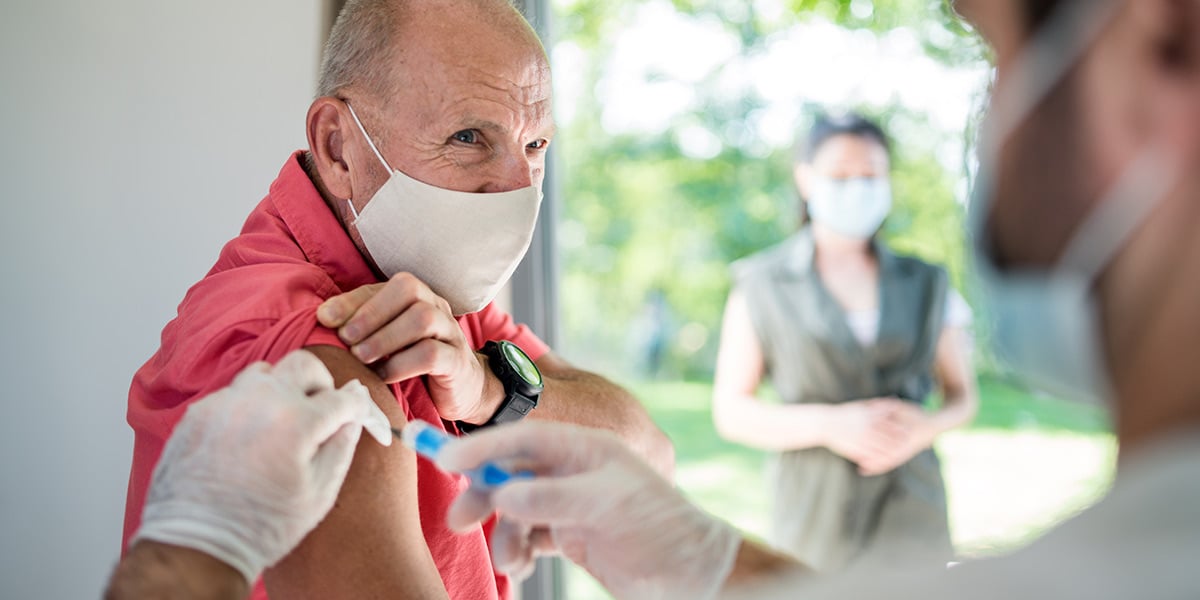Johnson & Johnson COVID Vaccine Approved. Here’s How It Works

The Food and Drug Administration has approved a third vaccine for the coronavirus that causes COVID-19. And it’s a big step for public health.
According to the FDA and Johnson & Johnson, the vaccine has a number of advantages over the two previously approved vaccines:
- It only requires one dose.
- It’s more stable at room temperature, making it easier to store and transport.
- It has milder side effects.
- There is currently no reported risk for anaphylaxis.
- It’s highly effective in the prevention of severe COVID-19.
In the U.S. population, it’s 74.14 percent effective at preventing symptomatic COVID-19.
While the vaccine is now approved under an Emergency Use Authorization, there is limited supply. The company says it will deliver around 20 million doses by the end of March, but most of those will come at the end of the month. The company is contracted to deliver 100 million by the end of June.
How the Johnson & Johnson COVID-19 Vaccine Works
Similar to the Moderna and Pfizer vaccines, the Johnson & Johnson vaccine uses genetic instructions to teach cells how to grow the coronavirus’s spike protein. The body’s immune system sees this protein and learns to attack it. When it encounters the full coronavirus, its immune response kills the invader that causes COVID-19.
Where it differs from the current mRNA vaccines is in its delivery method. The Pfizer and Moderna vaccines use an oily shell that allows them to pass into cells. That oily shell is one of the reasons the vaccines have to be kept so cold. It can begin to break down at room temperature.
Johnson & Johnson’s (and AstraZeneca’s) vaccine uses another virus to deliver the instructions and is much more stable at room temperatures. The virus Johnson & Johnson uses is a modified human adenovirus, which can enter the cells but is genetically altered so that it cannot replicate.
Adenoviruses typically causes the common cold. But J&J’s version doesn’t cause sickness. J&J previously used this method for an Ebola vaccine that has been approved in Europe.
Once in the cell, the adenovirus invades the nucleus where the body’s DNA is stored. The DNA reads the gene for the coronavirus spike protein and the cell begins to create it. The immune system then recognizes the foreign cell structure and develops a response to it. Since the adenovirus used is modified, it will not be able to replicate and cause infection nor integrate with the human genome.
J&J’s vaccine is more stable than the current vaccines and can be kept in a regular refrigerator for several months.



